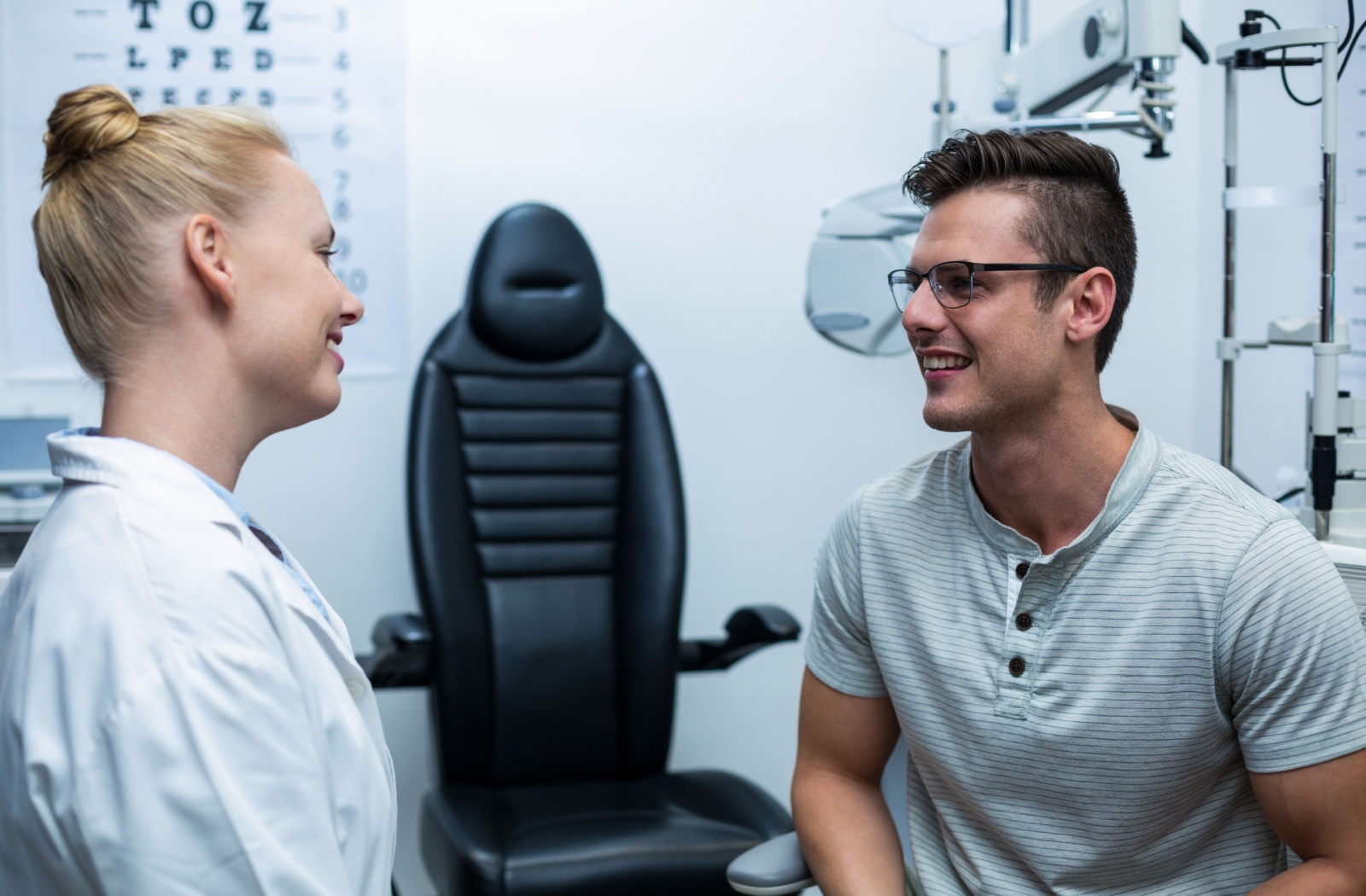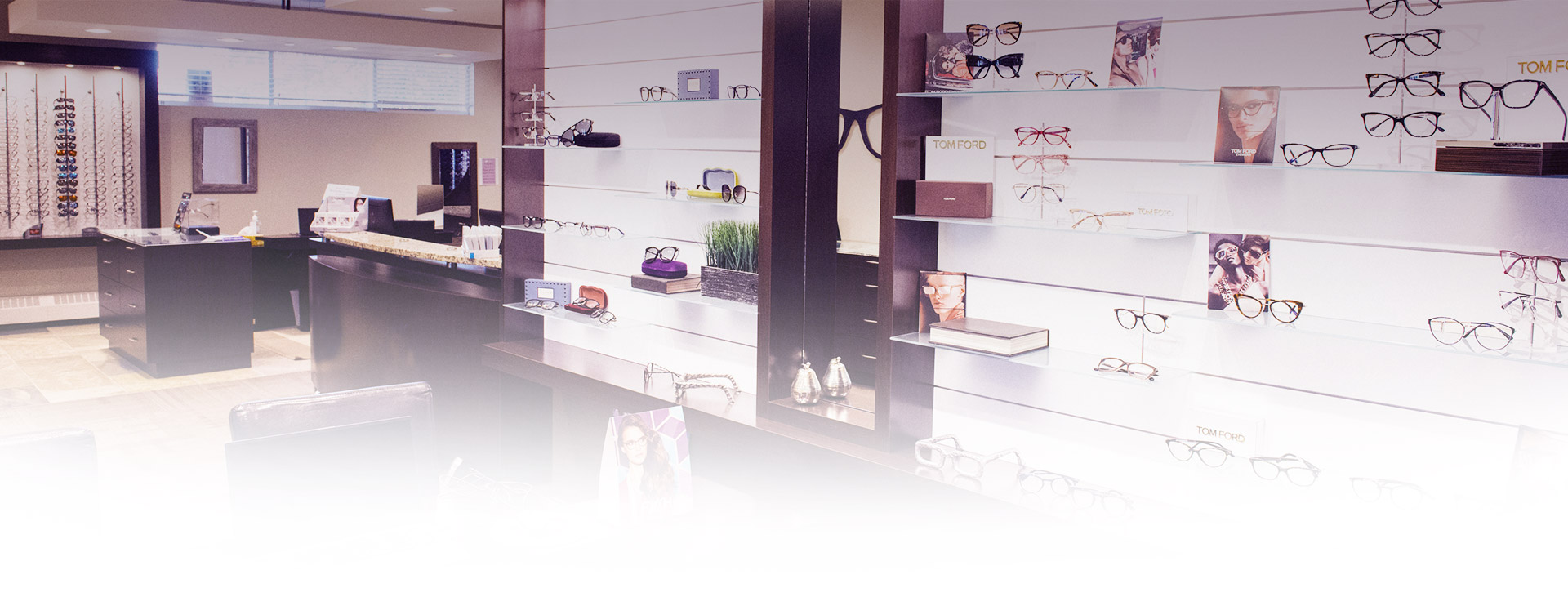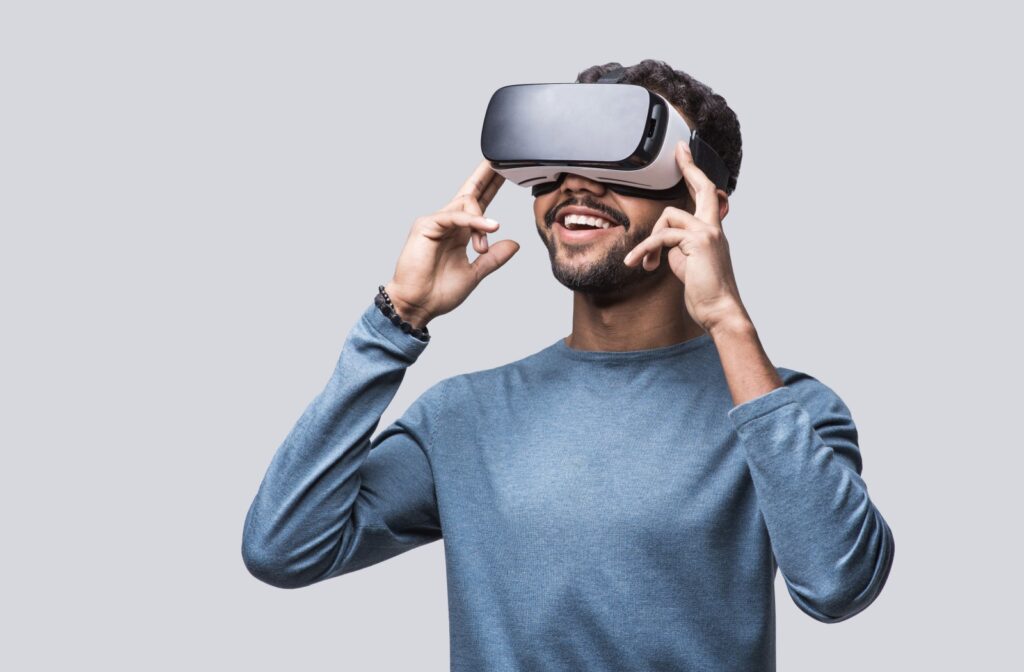In a world increasingly captivated by immersive experiences, virtual reality (VR) technology has skyrocketed in popularity, promising new dimensions of interaction and entertainment. However, as VR devices become more common in our homes and workplaces, it’s important to think about how their use could affect your eye health.
Overall, virtual reality technology is considered safe for your eyes, but using it for prolonged periods can cause some issues, such as digital eye strain and associated dry eye symptoms. VR may also cause motion sickness and affect the eye development of children. If you or your child do experience issues you think may be caused by VR, consider scheduling an eye exam to learn more about what could be causing your symptoms.
Because it is an emerging technology, there is ongoing research being done to fully understand how VR may affect eye health. In some cases, VR technology can even be used to support eye development and train your vision when it’s used with guidance from an eye care professional.
Effects of VR on the Eyes
Given the proximity of VR screens and the enclosed nature of VR headsets, there are a few potential problems that may arise with prolonged VR use. The key areas of concern include eye strain, vision abilities, motion sickness, and children’s eye development.
Eye Strain
When we use VR headsets for extended periods of time, our eyes can be fixated on a very close screen, yet we may perceive the images as far off. This can tire the muscles responsible for focusing, leading to eye strain.
As with other forms of extended screen use, using VR for a long period of time may also increase your risk of experiencing other symptoms of digital eye strain, such as dry eyes.
Accommodation-Vergence Conflict
In natural vision, accommodation, your eyes’ ability to adjust focus, and vergence, your eyes’ ability to move and look at an object together, work in tandem as you shift focus between objects at varying distances.
VR use may disrupt this harmony as the eyes maintain a constant lens focus while verging towards images that appear to be at multiple depths, which can affect your visual abilities and cause eye strain.
Motion Sickness
Some VR users experience motion sickness, which can be caused by the disconnect between their perception of movement in the virtual space and the lack of corresponding physical motion. Cybersickness is a new term being used to describe motion sickness caused by VR use.
Children’s Eye Development
Some VR headsets have specific warnings in place because of their potential effects on children’s eye health and development. It’s important to follow these warnings.
In some cases, VR devices can also be used to support eye development and help build visual skills. Systems have been developed to improve visual acuity in amblyopia (lazy eye) and to help enhance eye-hand coordination, depth perception, reaction time, and eye coordination. VR with this purpose should always be used with guidance from an eye care professional.
Digital Strain & Eye Health
Digital eye strain, also known as computer vision syndrome, encompasses a range of ocular and visual symptoms resulting from prolonged use of digital screens. Its symptoms include:
- Dry eyes
- Blurred vision
- Headaches
- Neck or shoulder pain
- Double vision
- Red eyes
- Irritated eyes
- Tired eyes
- Watery eyes
As with other digital devices, prolonged VR use may exacerbate eye discomfort and contribute to fatigue.
Maintaining Eye Health with VR Usage
While the allure of VR is undeniable, your eye health shouldn’t be overlooked. Here are some practical measures to help you keep your eyes healthy while indulging in VR activities:
Take Breaks
Practice the 20-20-20 rule—every 20 minutes, take a 20-second break and look at something 20 feet away. This helps rest the eye muscles and prevent fatigue.
Adjust Settings
Personalize VR headset settings for maximum comfort. Adjusting interpupillary distance (IPD) to match your eyes may help reduce strain.
Use Proper Lighting Conditions
Use VR in a well-lit room to reduce the contrast between the screen and your surrounding environment. This can help minimize eye strain.
Blink Frequently
Screen use can disrupt your natural blink rhythm. Remember to blink regularly to keep your eyes moist and avoid dry eyes.
Enjoy VR Safely
Is virtual reality bad for your eyes? The answer isn’t certain, as it can depend on the duration and conditions of VR usage. While the technology itself is not inherently harmful, overuse, incorrect settings, or pre-existing eye conditions could increase your risk of discomfort. Children may also face an increased risk of some eye complications from VR use.
By understanding the effects that VR can have on your eyes, you can enjoy virtual experiences without neglecting your eye health. It’s essential to strike a balance that allows you to harness the innovations of VR while helping your eyes stay healthy for all the real-world sights yet to be seen.

Let’s Talk About VR & Your Eyes!
Here at Visionary Eye Centre, we can advise you on how to make the most of your virtual reality experience without jeopardizing your eye health. Book an appointment with us to talk about your personal eye health.



